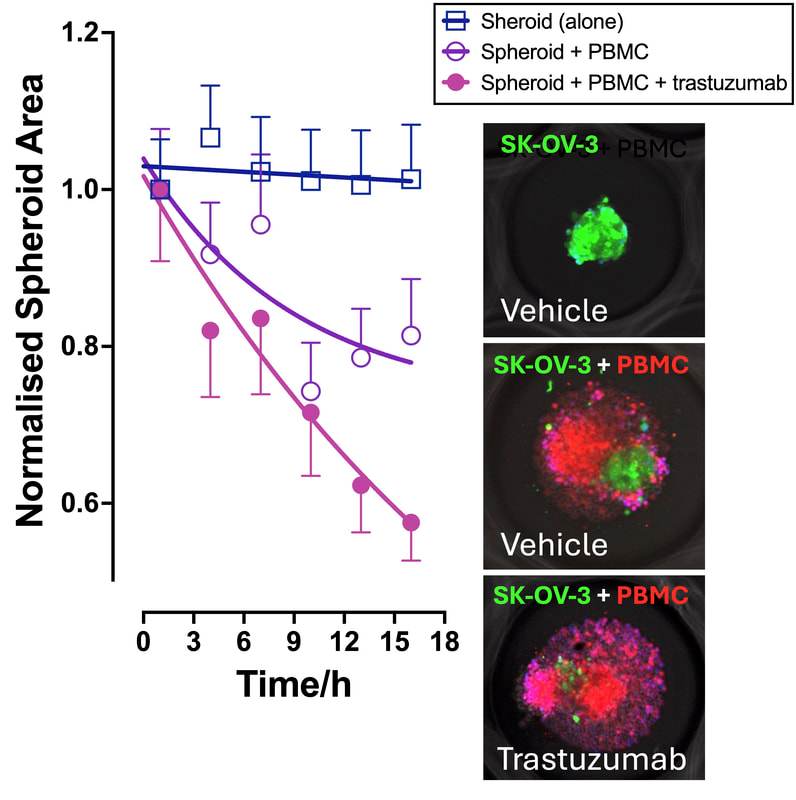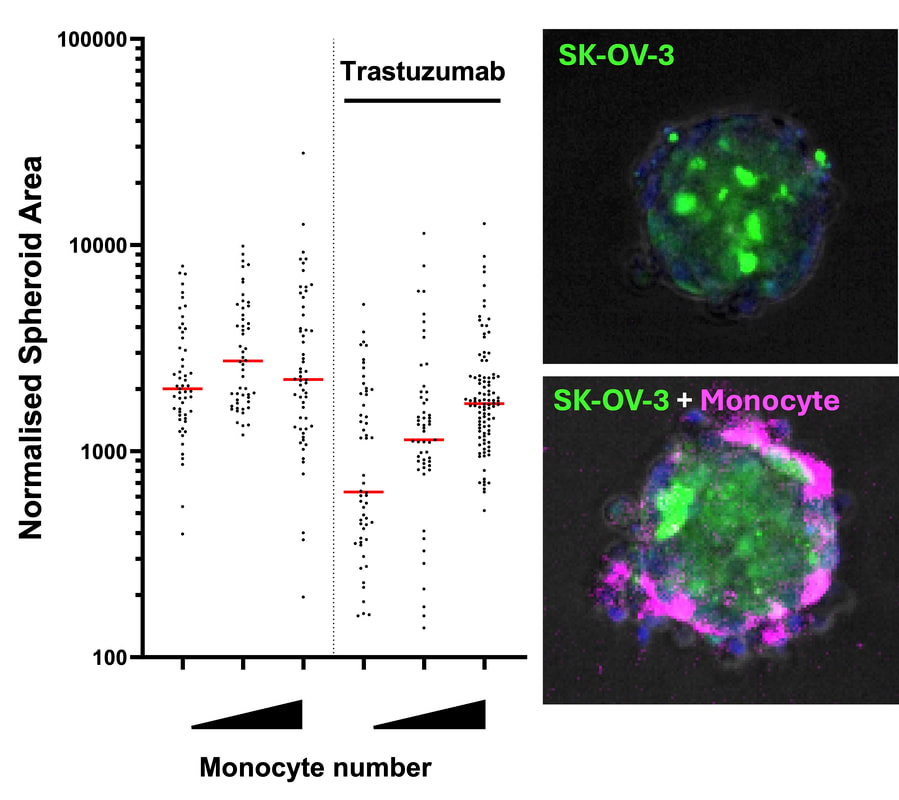Home > Immunology Assays > Spheroid Killing Assay
Assays for measuring the impact of immunomodulators on immune cell-mediated tumour cell spheroid killingThe growth of tumour cell lines in a 3D format may capture additional biology relevant to the testing of anti-cancer therapeutics such as changes in cell-cell junctions, extracellular matrix, drug penetration, immune cell penetration and hypoxia. Celentyx offer a 96-well tumour cell spheroid assays which can be used to assess immune cell mediated killing by peripheral blood mononuclear cells (PBMCs) or purified immune cell sub-populations including NK cells, CD8 T cells or γδ T cells. The spheroid microenvironment can be altered by the inclusion of myeloid cells (such as monocytes) or fibroblasts. This assay is suitable for quantifying immuno-oncology therapeutics that mediate antibody-dependent cellular cytotoxicity (ADCC) or checkpoint inhibition.
Assays may be suitable for evaluating therapeutics targeting 4-1BB, CD3, CD28, CD40, CD40L, CD70, CEACAM-1, CTLA-4, EGFR, GITR, HER2, IL-2R, IL-9R, IL-12R, IL-15R, IL-21R, LAG-3, PD-1, PDL-1, TGFβ, TIGIT, TIM-3, and others, in screening, potency, efficacy or benchmarking assays. |
Antibody-dependent cellular cytotoxicityTrastuzumab enhanced PBMC-mediated killing of SK-OV-3 spheroids.
|
Myeloid-tumour cell spheroidsWithin the tumour microenvironment, M2 macrophages and myeloid-derived suppressor cells (MDSCs) can play a suppressive role and restrict immune cell mediated killing. Below shows incorporation of monocytes into the spheroid inhibits trastuzumab-mediated killing of the tumour cells.
|


